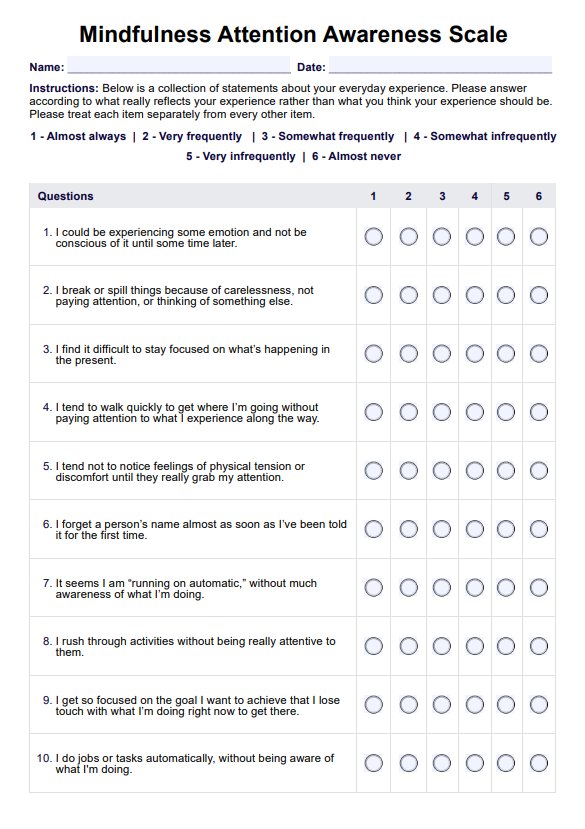The Mindful Attention Awareness Scale (MAAS) is a psychological tool used to measure an individual's mindfulness level, assessing their ability to maintain attention and awareness in daily life.

Mindfulness Attention Awareness Scale
Discover the Mindful Attention Awareness Scale (MAAS) and its role in enhancing mindfulness with a detailed guide and example for mental health professionals.
Mindfulness Attention Awareness Scale Template
Commonly asked questions
Yes, the Mindful Attention Awareness Scale is both reliable and valid. Extensive research, including studies by Brown and Ryan, has demonstrated its high internal consistency, test-retest reliability, and validity in various populations.
The MAAS score is interpreted by adding the ratings of all items, with a higher total indicating a higher level of mindfulness. Lower scores suggest a tendency towards less mindfulness and being more distracted or automatic in daily activities.
EHR and practice management software
Get started for free
*No credit card required
Free
$0/usd
Unlimited clients
Telehealth
1GB of storage
Client portal text
Automated billing and online payments











